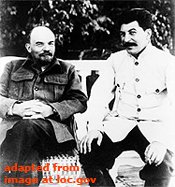Stalin: Still a Dividing Legacy Among Russians

(www.opendemocracy.net – Alexei Levinson – March 5, 2013)
Alexei Levinson is sociologist and senior researcher at the Levada Center, Russia’s leading polling organisation, Moscow
On the 60th anniversary of Joseph Stalin’s death, with Russian and international TV news bulletins showing old footage of his life and his funeral, Alexei Levinson looks at how his legacy still divides Russians today.
Why should we look at these old photos, at the faces of these strangers who have certainly long since departed this world? Why should we remember these outbursts of national grief, which were equally outbursts of mass insanity?
These are any number of reasons, for me the most important one is that we need to look closely at the Stalin era, at its rituals and its excesses, including the events surrounding Stalin’s funeral, to try to understand how much we are like the people in the photos, and how much we differ from them. Could the Russians of today behave like the crowds that thronged to Stalin’s funeral? Could the horrors of his reign be repeated, and if so, to what extent?
It is useful for people who ponder our society today to reassure themselves that some of the lessons of glasnost have been learnt. This was shown by the results of a nationwide survey of adult Russians conducted by the Levada Centre in February 2013. To the question, ‘What does Stalin’s death mean to you personally?’ more than half (55%) answered, ‘The end of terror and mass repression, and the release from prison of millions of innocent people.’ Only 18% chose the answer ‘The loss of a great leader and teacher’ (13% of the youngest age group, 26% of the oldest even among this group they are still in a minority).
The poll showed, however, that knowing about Stalin’s victims was still not enough to allow people to give a definite answer to the question ‘What role did Stalin play in the life of our country?’ Among respondents aged under forty, there were more ‘don’t knows’ than there were people choosing any more specific answer. And of those who did adopt a pro- or anti-Stalin position, only 10% on each side thought that Stalin’s role was ‘absolutely positive’ or ‘absolutely negative’. It is worth emphasising that even among respondents representing the opposite ends of the political spectrum in Russia, of [Communist] Zyuganov supporters less than 20% took this ‘stalinist’ line, and only about 10% of supporters of [free marketeer] Mikhail Prokhorov expressed the opposite, anti-stalin view. The majority of Russians two thirds of those polled chose ‘softer’ options on both sides of the divide, with 22% answering ‘more negative than positive’, and 40%, ‘more positive than negative’.
To sum up: public consciousness is not divided between those who are ‘pro-Stalin’ and those who are ‘anti-Stalin’; those who recognise his crimes and those who deny them. Today people ‘know everything’, but prefer ‘not to judge’, ‘not to condemn’ in this they certainly differ from the Soviet citizens of Stalin’s own time. Today’s Russians are not looking for an all-powerful leader and don’t want anyone exterminated in the GULAG, as they did in the 30s. But they are still not totally immune to a system that might wish to behave in that way.
Article also appeared at http://www.opendemocracy.net/od-russia/alexei-levinson/stalin-still-dividing-legacy-among-russians bearing the following notice:
 This article is published under a Creative Commons licence. If you have any queries about republishing please contact us. Please check individual images for licensing details.
This article is published under a Creative Commons licence. If you have any queries about republishing please contact us. Please check individual images for licensing details.
